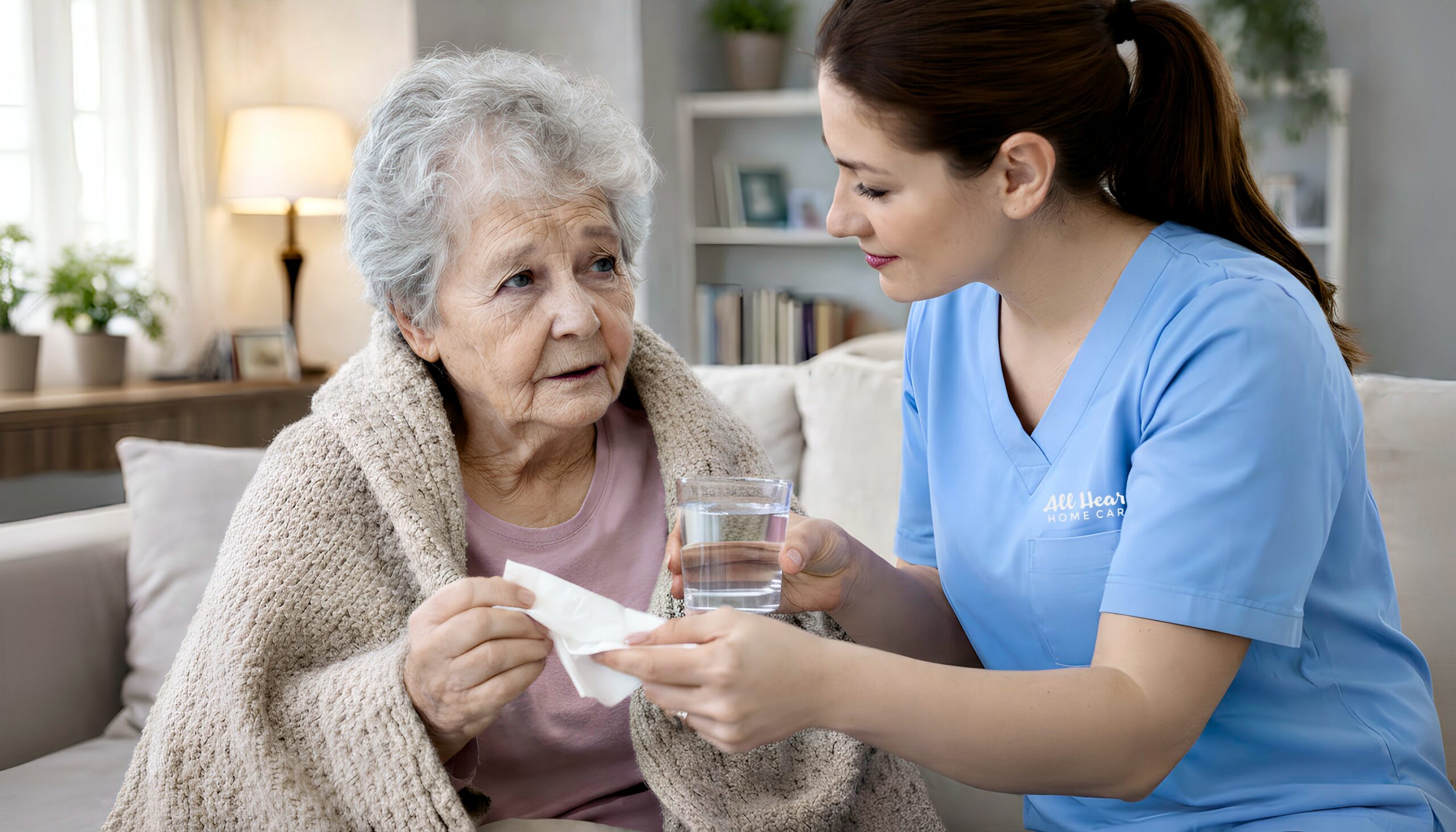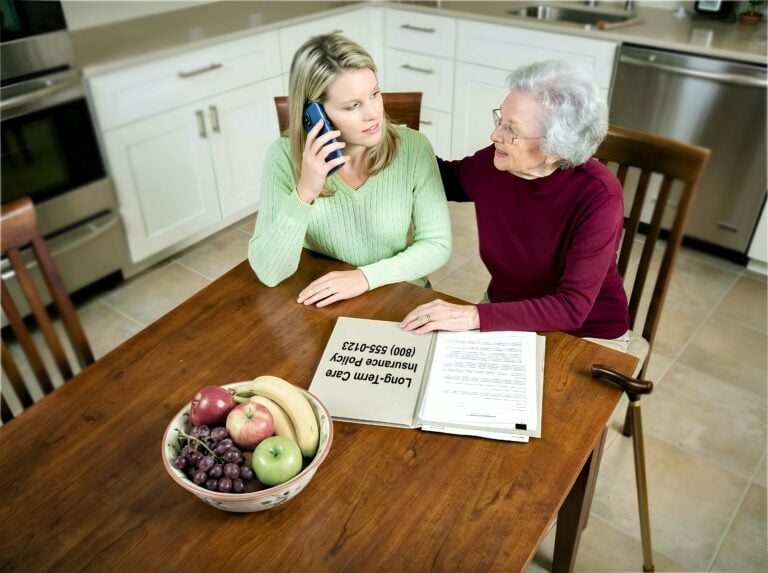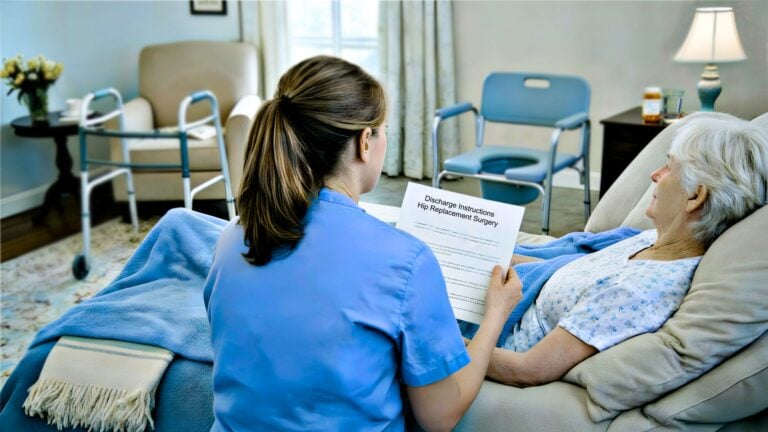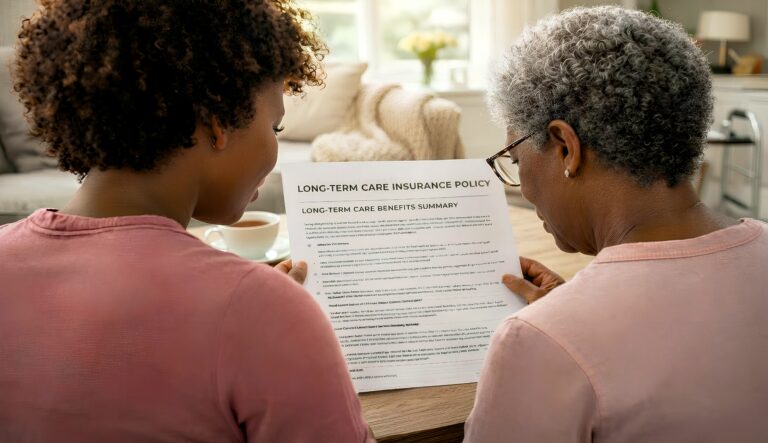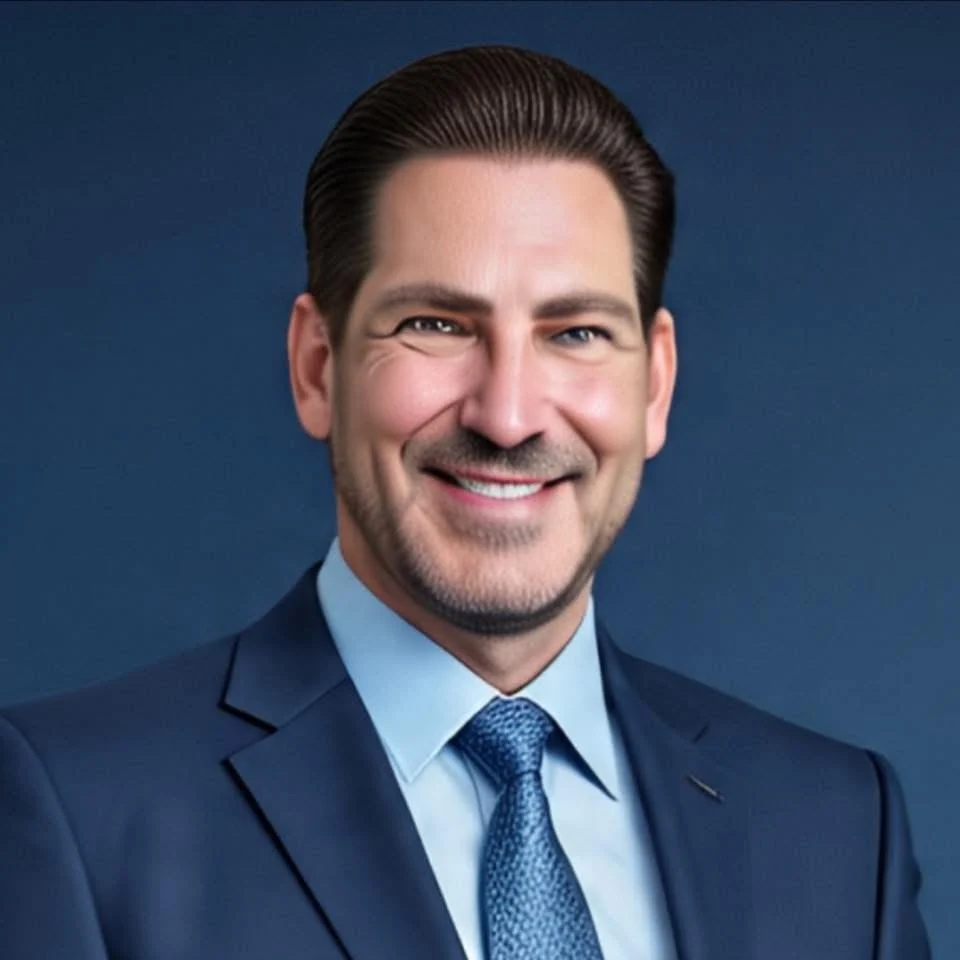Senior flu prevention isn’t just about avoiding a few days of feeling unwell. For adults 65 and older, influenza can be life-threatening.
The 2024-2025 flu season was classified as “high severity” by the CDC — the most severe since 2017-2018. And adults 65 and older bore the heaviest burden, accounting for 57% of all flu-related hospitalizations and up to 85% of flu-related deaths.
The numbers tell a sobering story: between 560,000 and 1.1 million Americans were hospitalized with flu complications during the 2024-2025 season, with an estimated 38,000 to 99,000 deaths. For seniors aged 75 and older, the hospitalization rate reached a staggering 598.8 per 100,000 — the highest of any age group.
This comprehensive guide to senior flu prevention covers everything San Diego families need to know about protecting elderly loved ones from influenza — from the most effective vaccines to recognizing warning signs that require immediate medical attention.
Why Flu Is So Dangerous for Seniors
What makes influenza so much more dangerous for older adults? Several factors combine to create a perfect storm of vulnerability.
Weakened Immune Response
As we age, our immune systems naturally become less robust — a process called immunosenescence. This means seniors’ bodies are slower to recognize and fight off the flu virus, allowing it more time to cause damage before the immune response kicks in.
Chronic Health Conditions
Most adults over 65 have at least one chronic health condition, and many have several. Conditions that increase flu complications include:
- Heart disease and a history of stroke
- Diabetes
- Chronic lung conditions (COPD, asthma)
- Kidney disease
- Weakened immune system
- Neurological conditions (dementia, Parkinson’s)
Serious Flu Complications in Seniors
For older adults, flu can trigger a cascade of complications:
▶ Pneumonia — The most common serious complication. Bacterial pneumonia often develops as a secondary infection after the flu weakens the respiratory system.
▶ Cardiovascular events — Flu increases the risk of heart attack and stroke for months after infection due to inflammation and increased blood clot risk.
▶ Worsening chronic conditions — Flu can destabilize diabetes, trigger COPD exacerbations, and worsen heart failure.
▶ Functional decline — Research shows many seniors who are hospitalized with flu never fully return to their pre-illness level of function and independence.
Senior Flu Prevention: The Most Important Step — Vaccination
Annual flu vaccination remains the single most effective strategy for preventing flu in seniors. The CDC and Advisory Committee on Immunization Practices (ACIP) strongly recommend that all adults 65 and older receive a flu vaccine every year.
Enhanced Vaccines Recommended for Seniors 65+
Standard-dose flu vaccines don’t work as well in older adults because of age-related immune decline. That’s why the CDC preferentially recommends enhanced flu vaccines specifically designed for seniors:
Fluzone High-Dose:
- Contains four times the antigen of standard vaccines
- Produces a stronger immune response in older adults
- Studies show it is 24% more effective than standard-dose vaccines in preventing flu in seniors
Fluad (Adjuvanted):
- Contains an adjuvant (immune booster) that enhances the body’s response
- Particularly effective for those with weaker immune systems
Flublok (Recombinant):
- Contains three times the antigen of standard vaccines
- Made without eggs — ideal for those with egg allergies
- Studies suggest it may be the most effective option for adults 65+
When to Get Vaccinated for Senior Flu Prevention
Timing matters for flu vaccination:
✓ September through October — Ideal timing for most seniors. This provides protection before flu season, which typically peaks in January-February.
✓ Avoid July-August vaccination — For most adults 65+, earlier vaccination may result in reduced protection later in the season when flu activity peaks.
✓ It’s never too late — If you haven’t been vaccinated yet, get your flu shot now. Vaccination provides benefits throughout the flu season.
Medicare Part B covers the annual flu vaccine at no cost when administered by an approved healthcare provider, doctor, or pharmacist.
Important Update for 2025-2026
All flu vaccines this season are trivalent (protecting against three strains) rather than quadrivalent. This change was made because one flu B lineage (B/Yamagata) has not circulated since the COVID-19 pandemic began.
The 2025-2026 season is shaping up to be particularly severe. Health experts are concerned about a mutated H3N2 strain (subclade K) that appears to cause more severe symptoms, including high fevers, persistent cough, and gastrointestinal symptoms.
Beyond Flu: Additional Vaccines That Support Senior Flu Prevention
Flu isn’t the only respiratory threat. Other vaccines complement your senior flu prevention strategy:
Pneumococcal Vaccine:
- Protects against bacterial pneumonia — a common flu complication
- CDC now recommends for all adults 50+ (lowered from 65 in October 2024)
- The new PCV21 vaccine (CAPVAXIVE), approved in 2024, covers 86.5% of adult pneumococcal disease
RSV Vaccine:
- Recommended for all adults. 75+
- Also recommended for adults 60-74 with chronic conditions
- One-time vaccination provides lasting protection
COVID-19 Vaccine:
- Updated vaccines are recommended annually
- Adults 65+ may receive two doses (six months apart)
All of these vaccines can be given on the same day as the flu vaccine.
Daily Prevention Strategies for Senior Flu Prevention
Vaccination is the foundation of senior flu prevention, but these daily habits provide additional layers of protection:
Hand Hygiene
Flu viruses spread easily through contaminated hands touching the face. Effective handwashing is one of the simplest yet most effective strategies for preventing senior flu.
✓ Wash hands frequently — With soap and water for at least 20 seconds
✓ Key times to wash — Before eating, after using the bathroom, after touching public surfaces, after coughing or sneezing
✓ Use hand sanitizer — At least 60% alcohol when soap isn’t available
Avoid Exposure
✓ Stay away from sick people — Ask family members with symptoms to postpone visits
✓ Avoid crowded places during peak flu season — January through February typically sees the highest flu activity
✓ Consider masking — In crowded indoor settings during high flu activity periods
Support Overall Health
✓ Get adequate sleep — Poor sleep weakens immune function
✓ Stay hydrated — Dehydration impairs the body’s defenses
✓ Eat nutritious foods — Adequate protein and vitamins support immune health
✓ Manage chronic conditions — Well-controlled diabetes, heart disease, and lung conditions reduce flu complications
Recognizing Flu Symptoms in Seniors
Flu symptoms often come on suddenly and can be more severe in older adults. Watch for:
- Fever or feeling feverish/chills (though not all seniors develop fever)
- Cough
- Sore throat
- Runny or stuffy nose
- Muscle or body aches
- Headaches
- Fatigue and weakness
- Some people experience vomiting and diarrhea (more common in the 2025-2026 strain)
Atypical Symptoms in Older Adults
Seniors may not show “classic” flu symptoms. Watch for:
▶ Confusion or altered mental status — May be the first or only sign of serious illness
▶ Unusual fatigue or weakness — More pronounced than typical tiredness
▶ Loss of appetite — Refusing food or fluids
▶ Dizziness — Increasing fall risk
▶ No fever — Older adults may have a serious flu infection without an elevated temperature
When to Seek Medical Care
For seniors, early treatment is critical. Contact a healthcare provider immediately if flu symptoms develop — don’t wait to see if symptoms improve.
Emergency Warning Signs — Seek Care Immediately
Call 911 or go to the emergency room if you observe:
▶ Difficulty breathing or shortness of breath
▶ Persistent chest pain or pressure
▶ New confusion or difficulty waking
▶ Severe or persistent vomiting
▶ Bluish lips or face
▶ Severe muscle pain
▶ Symptoms that improve but then return with fever and worsening cough
Antiviral Treatment: Timing Is Everything
Antiviral medications can reduce the severity and duration of flu — and help prevent serious complications. But they work best when started early.
The 48-Hour Window
Antiviral medications are most effective when started within 48 hours of symptom onset. This is why seniors should contact their healthcare provider at the first sign of flu symptoms — not wait to see if they feel better.
The CDC recommends antiviral treatment for all adults 65 and older with suspected or confirmed flu, regardless of vaccination status.
Available Antiviral Medications
Oseltamivir (Tamiflu):
- Oral medication (pill or liquid)
- Taken twice daily for five days
- Most commonly prescribed; preferred for older adults
Baloxavir (Xofluza):
- Single-dose oral treatment
- Convenient one-time dosing
- Approved for adults 5 and older
Zanamivir (Relenza):
- Inhaled medication
- Not recommended for people with asthma or COPD
Peramivir (Rapivab):
- Intravenous (IV) medication
- Used primarily for hospitalized patients
Benefits Even After 48 Hours
While early treatment is ideal, research shows that antiviral treatment can still benefit hospitalized patients even when initiated more than 48 hours after symptom onset. One study found that oseltamivir treatment was associated with significantly reduced mortality risk in hospitalized adults (average age 77), even among those who began treatment late.
The message: If you have flu symptoms, seek treatment — it’s never too late to benefit.
Caring for a Senior with the Flu at Home
Even with the best senior flu prevention efforts, illness can still occur. If your loved one has the flu and is recovering at home, supportive care can help:
✓ Ensure adequate hydration — Offer water, broth, and electrolyte drinks frequently. Dehydration is a serious risk, especially with fever.
✓ Monitor symptoms closely — Watch for warning signs that require emergency care.
✓ Manage fever and pain — Acetaminophen can help with fever and body aches (follow dosing instructions and check with healthcare provider).
✓ Ensure antiviral medication compliance — Make sure all doses are taken as prescribed.
✓ Provide rest — The body needs energy to fight infection.
✓ Prevent spread to others — The person with flu should stay isolated when possible, and caregivers should wash hands frequently and consider wearing a mask.
How Home Care Supports Senior Flu Prevention and Recovery
Professional in-home caregivers play a vital role in both senior flu prevention and recovery:
Prevention Support:
- Reminders and transportation for flu vaccination appointments
- Maintaining clean, sanitized living environments
- Ensuring proper nutrition and hydration to support immune health
- Monitoring for early symptoms and alerting family members
Recovery Support:
- Monitoring symptoms and watching for warning signs
- Ensuring medication compliance (including antivirals)
- Providing adequate fluids and light meals
- Assisting with activities of daily living during weakness
- Communicating with family and healthcare providers
For seniors with dementia or other cognitive conditions, caregivers are essential partners in senior flu prevention — they can recognize subtle changes that might indicate serious illness and ensure that medication schedules are followed.
References
- Centers for Disease Control and Prevention. (2025). Flu and People 65 Years and Older.
- Centers for Disease Control and Prevention. (2025). Influenza Activity in the United States during the 2024–25 Season and Composition of the 2025–26 Influenza Vaccine. Morbidity and Mortality Weekly Report.
- Centers for Disease Control and Prevention. (2025). Prevention and Control of Seasonal Influenza with Vaccines: Recommendations of the Advisory Committee on Immunization Practices — United States, 2025–26 Influenza Season. MMWR.
- Centers for Disease Control and Prevention. (2025). Influenza Antiviral Medications: Summary for Clinicians.
- National Foundation for Infectious Diseases. (2024). Influenza (Flu) Treatment.
- National Council on Aging. (2025). 2025–2026 Flu Season: Vital Vaccine Guidance for Older Adults.
Protecting Your Loved One This Flu Season
Effective senior flu prevention requires a multi-layered approach: annual vaccination with enhanced vaccines, daily prevention habits, early recognition of symptoms, and prompt treatment when illness strikes.
At All Heart Home Care, our caregivers understand the serious risk posed by the flu to older adults. We help San Diego families keep their loved ones safe — from ensuring vaccination appointments happen to providing attentive care during illness and recovery. Our nurse-led team brings both clinical knowledge and genuine compassion to every home we serve, from La Mesa to La Jolla to Rancho Bernardo.
Whether you need hourly care during flu season or 24-hour support for a loved one recovering from illness, we’re here to help.
Call us at (619) 736-4677 for a free consultation.
Disclaimer: This article is for informational purposes only and does not constitute medical advice. Always consult with qualified healthcare providers about flu vaccination and treatment. Flu symptoms in seniors should be evaluated promptly by a medical professional.

